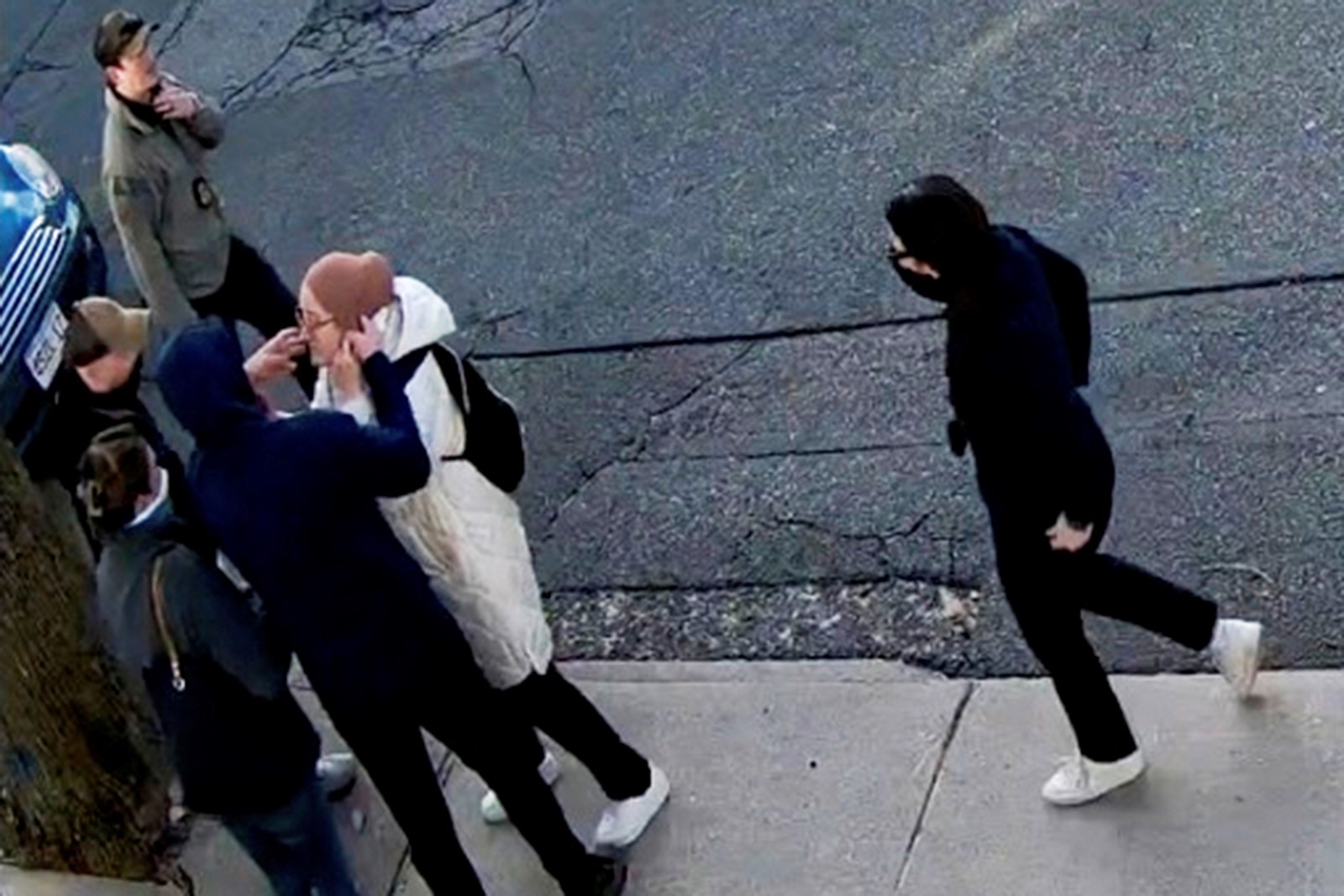
The security video looked like a scene from an undercover sting operation against a 30-year-old Turkish graduate student in her white coat and backpack.
Rumeysa Ozturk was walking down a street in Somerville, Mass., on Tuesday when she was surrounded by federal agents wearing dark sweatshirts, some of their faces obscured by black masks. As they pulled off her backpack and handcuffed her, the terrified student let out a cry. One officer explained, “We’re the police.”
As the Trump administration ramps up its deportation efforts, critics say tourists, foreign students and other legal immigrants are being subjected to aggressive arrest tactics usually reserved for criminal suspects. They have been swarmed by teams of masked agents, zip-tied and bundled into unmarked vehicles.
The tactics are not particularly new. U.S. Immigration and Customs Enforcement officials declined to answer questions about tactics Thursday, but former officials said federal immigration agents do wear street clothes to avoid giving away their presence before an arrest. They also can wear face coverings to avoid being singled out and doxxed online.
Deborah Fleischaker, a former ICE chief of staff under the Biden administration, said that plainclothes ICE agents have long been allowed to detain immigrants who are in the country illegally, though they are required to show their badges when making such arrests.
What is shifting are the targets — immigrants with valid visas and legal status. In Ozturk’s case, supporters say she appears to have merely been a co-author of an editorial in a student newspaper criticizing Tufts University’s support for Israel.
“I think it’s a First Amendment violation,” Fleischaker said. “ICE had a policy in place that said that First Amendment activity was not to be the basis of enforcement action. That’s not why you enforce.”
Tricia McLaughlin, a spokesperson for the Department of Homeland Security, said investigators with Homeland Security and ICE “found Ozturk engaged in activities in support of Hamas, a foreign terrorist organization that relishes the killing of Americans. A visa is a privilege, not a right.” She did not offer evidence or details of that support.
Ozturk’s arrest is only the latest, and most public.
Vanessa Cárdenas, executive director of the immigrant advocacy group America’s Voice, said the images of masked immigration agents ricocheting around social media resembled the authoritarian governments that so many immigrants fled to come to the United States.
Yet far from trying to downplay the aggressive tactics, the White House and immigration officials have celebrated them by trying to turn images of enforcement into deportation memes.
On Thursday, the White House posted a cartoon image of a handcuffed woman crying, an apparent mockery of a detainee who ICE officials said was a fentanyl trafficker arrested in Philadelphia. Last month, the administration put out what it called an “ASMR video” — a popular online video form that uses subtle sounds to stimulate pleasure — of people being shackled for a deportation flight.
It is increasingly difficult to determine which federal agents are conducting immigration arrests. President Donald Trump has directed myriad federal agencies to assist ICE, including the Bureau of Prisons, the FBI and the Drug Enforcement Administration.
Enforcement operations by plainclothes agents are most likely to be increasingly visible under Trump. While the Biden administration directed ICE agents to only prioritize immigrants who posed a threat to national security, the Trump administration has ordered agents to target all of the millions of immigrants without legal status in the United States — as well as students with visas who “create a ruckus for us,” as Secretary of State Marco Rubio put it Thursday.
Ozturk was detained under a rarely used provision of the Immigration and Nationality Act, which the Trump administration has also used to try to deport other students and academics with some form of legal status. The measure says that the secretary of state can initiate deportation proceedings against any noncitizen whose presence in the United States is deemed a threat to the country’s foreign policy interests.


 PREVIOUS ARTICLE
PREVIOUS ARTICLE
